As the European Court of Justice in 2017 ruled that plant-based products cannot be labelled with dairy names such as “milk”, it is technically wrong to speak of “plant-based milks”: whether soy, oat or rice milk, the old nomenclature must be replaced with “plant-based drinks”. Regardless of the proper term (that for convenience will be retained here), there are plenty of plant-based milk options available for vegans and for people with lactose intolerance to start the day with. Here our favourite plant-based milk alternatives.
Plant-based milks as dairy-free alternatives
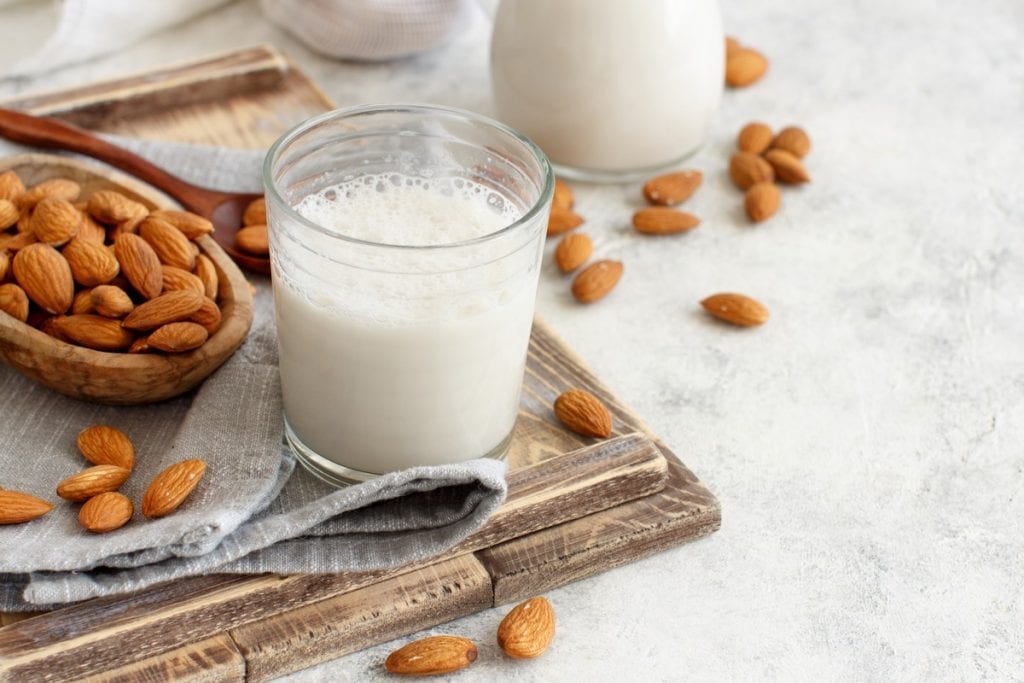
Almond milk
The ingredient list is very short (water, almond flour and sometimes vitamin E, a natural preservative and antioxidant), making almond milk a suitable option for almost every individual, unless, of course, for those with tree nut allergy. 100 g provide 51 calories, 1 g of protein, 2,3 g of fats and 6,6 g of carbohydrates, which will help you boost your morning energy. It also contains antioxidants – Tocopherol first of all – unsaturated fat acids (oleic and linoleic) and it is rich in calcium, magnesium, zinc, phosphorus and potassium. Making home-made almond milk is a piece of cake: soak the almonds, then peel and grind them. Now combine almonds and water in a blender, honey or sugar to sweeten if desired. Lastly, pour the almond mixture into the strainer and store it in a sealed glass bottle in the refrigerator. The amount may vary according to taste: generally, you will be using one litre of water per 200 g of almonds.
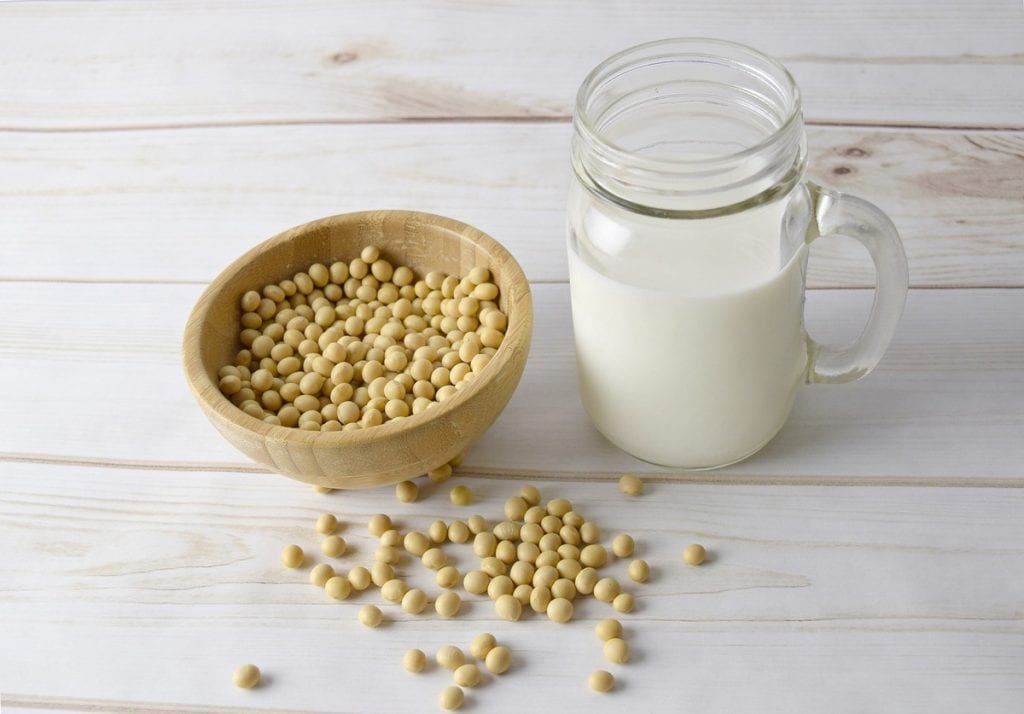
Soy milk
Its roots go back to China, where soy (a legume) was used in several recipes from ancient times: the first record of soy milk appeared under the Han Dynasty (164 BC), spreading soon to Japan and Korea. The emulsion consists of fat, water and proteins, containing about 3% of proteins, 2% of fats and carbohydrates, and 0,3% of minerals. Soymilk is also an excellent source of vitamin B2 and phosphorus, low in calories and with a low glycemic index as well. 100 g of soymilk provide 3,30 calories from carbohydrates, 17,10 calories from fats, and 11,60 calories from proteins. With a total amount of approximately 32 calories, soymilk ranks among the low-calorie beverages, especially if compared to other dairy-free substitutes such as rice milk (57,5 calories) or oat milk (47 calories).
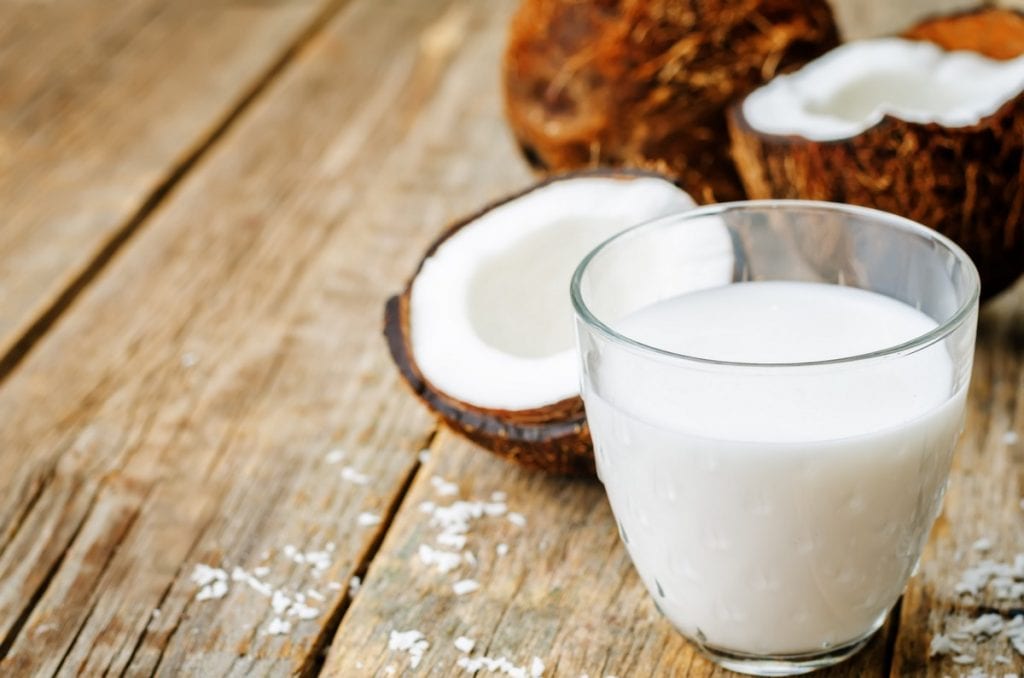
Coconut milk
White as snow (very similar to cow’s milk) and rather liquid, coconut milk does not contain cholesterol, while it is very nutritious: it provides the right amount of calories and saturated fats, more specifically medium-chain triglycerides, including lauric acid with powerful antiviral and antibacterial properties. Known to increase the levels of HDL cholesterol (the good one), it has positive effects on the cardiovascular system. Coconut milk is a good source of magnesium and vitamins as well, in particular C and E, that help boost the immune system. This beverage should not be confused with coconut water, which is found naturally in coconuts: it has no fibres and is less thick. Its water is rich in magnesium, potassium, phosphorus, and again lauric acid. Due to its high content of minerals and vitamins, coconut water can be used as food supplement. Another story is the coconut oil: a great alternative for cooking (it makes a wonderful substitute for butter in vegan baking recipes), it is also beneficial for use in cosmetics.
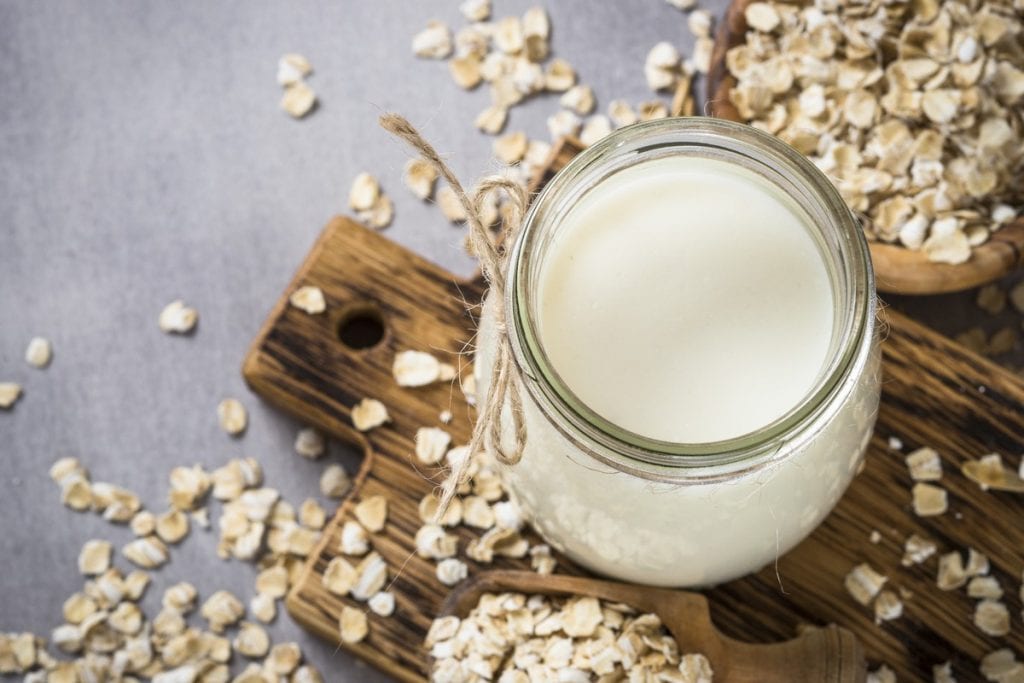
Oat milk
Very versatile in the kitchen, oats are grain that also lend themselves well to creating a tasty plant-based beverage. With a high content of proteins, which is rich in linoleic acid, oats have cholesterol-lowering properties and can improve the body’s function. Easy to digest and nutritious, oats give the body a slow release of energy, which will keep you full and light at the same time. Oat milk contains a small amount of proteins, a good source of essential amino acids, and it is high in fibres, which have positive effects on gastrointestinal problems. Oat milk is high in calcium as well: 120 mg of calcium per 100 g of oat milk. Low in calories, it supplies vitamin B. Available in every supermarket, oat milk can be easily prepared at home: soak 50 g of oats in approximately 200 ml of water, then blend and strain it. Add approximately 800 ml of water to the mixture, honey, sugar or other kinds of sweeteners to sweeten if desired.
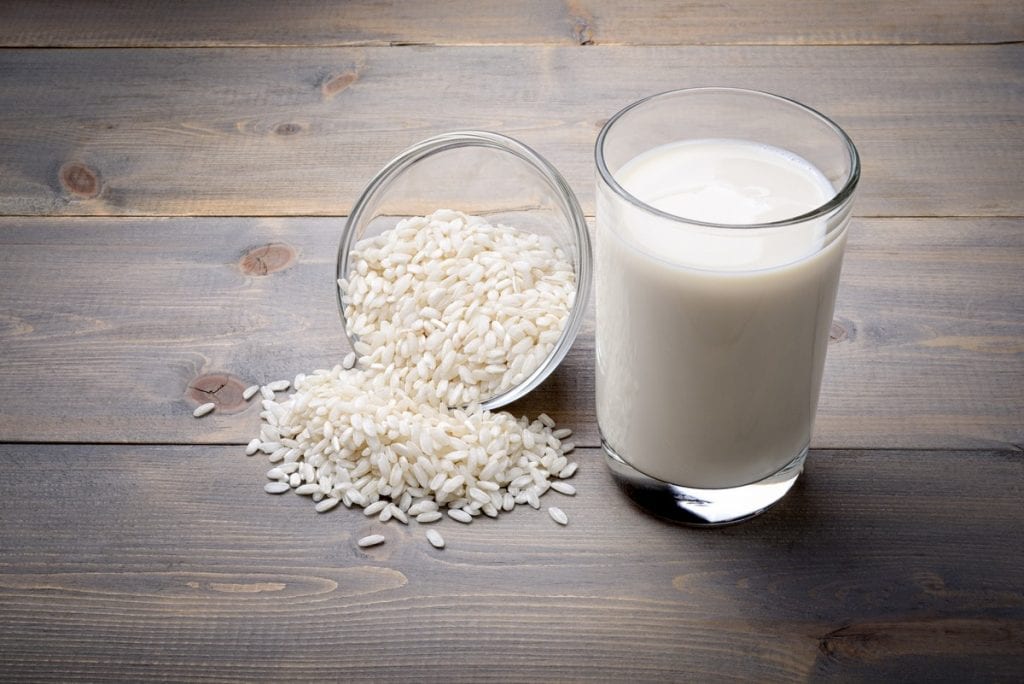
Rice milk
With a high content of simple sugars obtained from the spontaneous hydrolysis of starch, rice milk is an energy-boosting drink, easy to digest. Cholesterol-free but rich in polyunsaturated fat acids, it is particularly suitable for children, individuals with gastrointestinal problems, and athletes who love running in the morning on an empty stomach. From a nutritional point of view, rice milk is a high-calorie drink (70 calories per 100 g), low in protein and cholesterol-free. Home-made rice milk is very simple: cook one part rice to two parts water for two hours, let it cool down without stirring it for thirty minutes. Once the water gets fully absorbed into the grain, blend all the ingredients (add extra water if needed) and then strain the mixture. Store it in a sealed glass bottle and keep in the refrigerator up to three days. Honey or sugar to sweeten if desired, or flavour with cinnamon powder.
by Michela Becchi

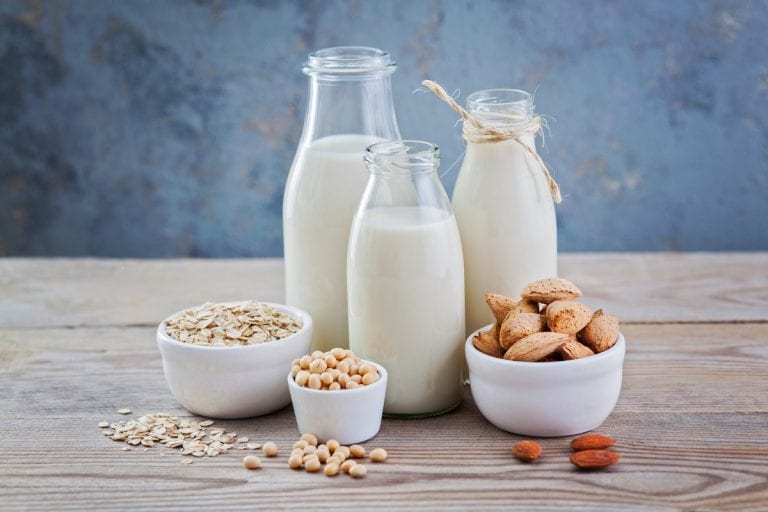
 Versace opens a super hotel with an Italian restaurant. Here's what Donatella Hotel & Restaurant in Miami will be like
Versace opens a super hotel with an Italian restaurant. Here's what Donatella Hotel & Restaurant in Miami will be like At The Crown Tirana, service and quality at the highest levels
At The Crown Tirana, service and quality at the highest levels We tasted Komb(w)ine, the new product that combines grape must and kombucha. Here’s our verdict
We tasted Komb(w)ine, the new product that combines grape must and kombucha. Here’s our verdict What changes for the export of Italian wines to China under the new regulations?
What changes for the export of Italian wines to China under the new regulations? “Forget dealcoholised wines. The future is Komb(w)ine.” Moser and Ravizza present a new grape must-based product
“Forget dealcoholised wines. The future is Komb(w)ine.” Moser and Ravizza present a new grape must-based product






